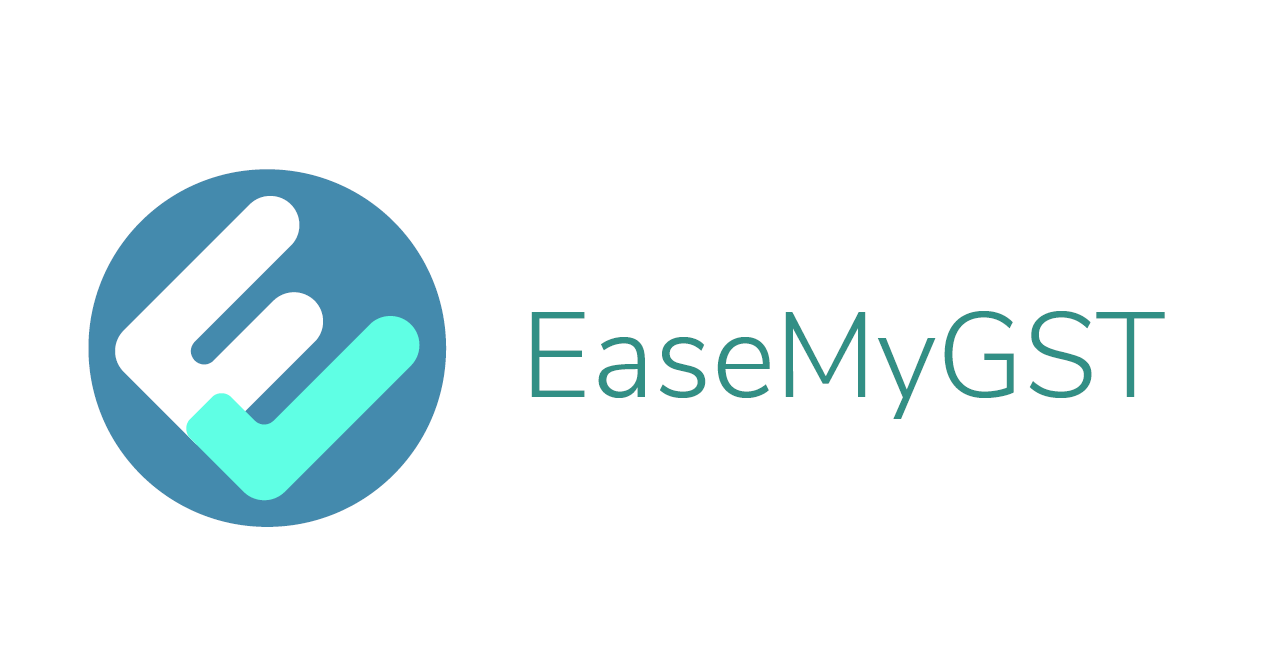Top Gst Softwares
GST software streamlines the Goods and Services Tax compliance process for businesses. It automates tax calculations, ensuring accuracy and reducing manual efforts. This software helps businesses generate GST-compliant invoices, manage returns, and maintain detailed records. By integrating with existing accounting systems, GST software provides seamless data transfer and real-time reporting. Busin... Read More
70 companies found
Product Description
Xero is a user-friendly software designed to make accounting simpler for small businesses. It's known for its clean, easy-to-navigate interface that allows you to handle your finances without needing to be a tech expert or accounting specialist. With Xero, you can manage your cash flow, track your expenses, and get a clear view of your company's financial health all in one place. One of the key b... Read More
Users
- • No Data
Industries
- • No Data
Market Segment
- • No Data
Product Description
Tax2win is designed with ease and simplicity in mind, making tax filing a hassle-free experience. Whether you're an individual or a business, this software streamlines the often complex process of filing taxes, ensuring you stay compliant with current regulations. With a focus on user-friendly features, Tax2win walks you through the entire tax preparation process, offering clear instructions and h... Read More
Users
- • No Data
Industries
- • No Data
Market Segment
- • No Data
Tally ERP 9
Product Description
Tally ERP 9 is an easy-to-use accounting and business management software designed primarily for small to medium-sized enterprises. It offers a suite of tools to help businesses manage their finances efficiently. With Tally ERP 9, tasks like invoicing, inventory management, and payroll processing become straightforward and hassle-free. One of its biggest strengths is its capability to handle comp... Read More
Users
- • No Data
Industries
- • No Data
Market Segment
- • No Data
Product Description
ClearPRO is designed to streamline and simplify how businesses manage their customer interactions and service operations. With a focus on efficiency and usability, ClearPRO offers a straightforward solution for handling customer inquiries, support tickets, and service requests all in one place. It's tailored to help companies keep track of their customer service activities without getting bogged d... Read More
Users
- • No Data
Industries
- • No Data
Market Segment
- • No Data
Masters India
Product Description
Masters India is a software designed to simplify and streamline compliance and financial processes for businesses. Catering mainly to Indian companies, it focuses on helping organizations manage their Goods and Services Tax (GST) requirements and accounting needs with ease. The software acts as a helpful tool to ensure that businesses can handle their financial tasks more efficiently and with less... Read More
Users
- • No Data
Industries
- • No Data
Market Segment
- • No Data
Product Description
SIMBIZ is designed to make business management simpler and more efficient. It's specifically crafted for small to medium-sized enterprises looking to streamline their operations and enhance productivity without getting bogged down by overly complicated systems. This software brings all the essential tools together in one place. From tracking sales and managing customer relationships to handling ... Read More
Users
- • No Data
Industries
- • No Data
Market Segment
- • No Data
QuickBooks
Product Description
QuickBooks is one of the most popular accounting software options around, specially designed to make managing finances easier for small to mid-sized businesses. Whether you're handling day-to-day transactions, tracking income and expenses, or preparing for tax season, QuickBooks offers a user-friendly solution that takes much of the hassle out of financial management. With QuickBooks, you can ke... Read More
Users
- • No Data
Industries
- • No Data
Market Segment
- • No Data
Product Description
myGSTcafe is designed to simplify the process of managing and filing GST (Goods and Services Tax) returns for businesses of all sizes. It offers an easy-to-use platform that takes the complexity out of tax compliance, making it easier for companies to stay on top of their financial obligations. Whether you run a small business or a larger enterprise, myGSTcafe streamlines the GST filing process an... Read More
Users
- • No Data
Industries
- • No Data
Market Segment
- • No Data
Product Description
EasemyGST is designed to help businesses simplify their Goods and Services Tax (GST) compliance process. Whether you run a small start-up or a large enterprise, managing GST can be complicated and time-consuming, but EasemyGST makes it easier. The software automates the various tasks associated with GST, from tax calculations to return filings, making it a hassle-free experience for users. It re... Read More
Users
- • No Data
Industries
- • No Data
Market Segment
- • No Data
Product Description
enComply is a straightforward, reliable tool designed to help businesses manage their tax compliance effortlessly. Built with simplicity and efficiency in mind, enComply works to keep your business in line with all the necessary tax rules without any of the usual headaches associated with the process. This software takes care of all the critical tasks involved, such as tax calculations, updates on... Read More
Users
- • No Data
Industries
- • No Data
Market Segment
- • No Data
What is GST software and how does it help businesses?
GST software is a digital tool designed to assist businesses with the management of Goods and Services Tax (GST) compliance. It helps in automating the processes associated with GST, thereby ensuring accuracy and efficiency in tax-related tasks. Businesses, whether small or large, use this software to streamline tasks such as tax calculation, return filing, and invoice generation.
Simplifying Tax Compliance
GST software plays a crucial role in simplifying tax compliance for businesses. It helps in:
-
Automated Tax Calculation: GST software automatically calculates the correct GST rates for products or services, reducing the need for manual computations. This automation minimizes errors, ensuring consistent accuracy.
-
Timely Return Filing: Businesses must file GST returns periodically. GST software helps users stay compliant by reminding them of deadlines and facilitating the easy filing of returns. It consolidates data from invoices and other financial documents, preparing them for submission.
Accurate Record Keeping
Maintaining precise financial records is essential for any business. GST software aids in:
-
Data Management: By integrating with other business systems, GST software centralizes all GST-related transactions. This centralization eliminates the clutter of manual records, ensuring data is organized and easily retrievable.
-
Comprehensive Reporting: The software generates detailed reports, providing insights into the GST a business has collected, paid, and needs to remit. These reports facilitate better financial planning and decision-making.
Reducing Manual Work
One of the key advantages of using GST software is the reduction of manual tasks, which include:
-
Invoice Generation: Manual invoicing can be error-prone and time-consuming. GST software automates invoice creation, ensuring each document is compliant with GST laws and includes necessary details such as GSTIN, HSN codes, and applicable rates.
-
Reconciliation: Businesses need to reconcile their accounts regularly to ensure all data matches. GST software helps in automated reconciliation, checking transactions against entries to identify discrepancies.
Ensuring Legal Compliance
Compliance with tax laws is critical to avoid penalties and legal issues. GST software:
-
Tracks Tax Law Changes: GST rules and rates can change. GST software updates regularly, ensuring that businesses remain compliant with the latest regulations.
-
Audit Support: By keeping detailed records and generating audit-friendly reports, GST software prepares businesses for audits, reducing stress by ensuring all data is accurate and readily available.
Enhancing Productivity
Ultimately, GST software enhances overall productivity by:
-
Saving Time: By automating tasks like calculations and invoice generation, businesses save a significant amount of time, allowing them to focus on core operations.
-
Reducing Errors: Human errors in tax calculations and filings can lead to financial loss. By minimizing these errors, GST software helps protect business interests.
In summary, GST software is an essential tool that aids businesses in managing GST-related tasks efficiently and accurately. Its impact on simplifying compliance, maintaining accurate records, and reducing manual work is invaluable to any business aiming to remain legally compliant while maximizing productivity.
How does GST software simplify the GST filing process?
Streamlined Data Management
GST software consolidates diverse financial data, easing collection and organization. This simplifies compiling and managing records for various GST returns. By housing transaction records, invoices, and other crucial documents in one place, businesses can swiftly access the necessary information. Regular imports from accounting software further streamline data updates.
Automated Calculations
GST software excels in carrying out precise calculations automatically. It determines the tax liabilities, input tax credits, and total amounts payable or receivable. This reduces the risk of human errors that often occur during manual calculations. With GST software, the most complicated VAT and tax computations become simple, enhancing accuracy in the GST filing process.
Compliance Updates
Tax regulations, especially those concerning the Goods and Services Tax, frequently change. GST software is regularly updated to comply with the latest guidelines. This ensures businesses always file their GST returns in alignment with existing legal frameworks. Real-time updates aid businesses in staying compliant without needing constant manual intervention.
Seamless Return Filing
GST software simplifies return filing by automating the uploading of invoices directly to the GST portal. This feature reduces the time needed to file returns and minimizes manual entries. By facilitating the direct processing of necessary forms and attachments, it streamlines the submission process, delivering a hassle-free experience.
Comprehensive Reporting
GST software provides in-depth reports, allowing businesses to analyze their GST data critically. These reports support financial analysis and assist in making informed business decisions. By leveraging these reports, businesses gain insights into tax amounts, liabilities, and input credits. Thus, efficient GST data management makes tracking and reporting more effective.
Invoice Generation
GST software automates invoice creation, ensuring that each invoice meets GST norms. This includes integrating elements like GSTIN details and tax breakdowns as per the relevant regulations. With this automation, generating invoices becomes a swift task, bolstering timeliness and precision without manual intervention.
Error Reduction
By automating data entry and calculations, GST software significantly reduces the possibility of errors in GST filings. Common mistakes in manual filing processes, such as data duplication or inaccuracies, are easily avoided. With these software solutions, businesses benefit from accurate returns, mitigating risks linked to manual missteps.
User-Friendly Interface
Most GST software solutions feature intuitive interfaces that assist users in navigating the filing process. Simplified dashboards depict GST obligations clearly, guiding users through the necessary steps for return submission. Even individuals less versed in accounting find these interfaces easy to understand, thus simplifying GST filing.
Scalability
GST software adapts to the business size, scaling from small enterprises to large corporations. This inherent flexibility ensures the software can support increased transaction volumes as businesses grow. Even as complexity increases, the software's ability to manage larger datasets ensures the GST filing process remains straightforward and efficient.
Cost Efficiency
By reducing reliance on costly professional services for filing, GST software offers a budget-conscious solution. Automation and efficiency lead to savings in both time and money. Rather than outsourcing, businesses can manage their GST tasks internally, realizing cost benefits while maintaining high compliance standards.
In essence, by automating various facets of the GST process, such as calculations, report generation, and filing, GST software significantly streamlines the entire process, making it more straightforward and less prone to errors.
What features should you look for in a good GST software?
When evaluating GST software, it is essential to focus on features that enhance efficiency and ensure compliance with tax regulations. Here are some significant features to consider:
Automated GST Calculations
A reliable GST software should automatically calculate the Goods and Services Tax for diverse transactions. This reduces human errors and increases accuracy in tax computations. Automation ensures that you comply with the latest GST rates and rules.
Return Filing Capabilities
Look for software that simplifies the GST return filing process. It should support various GST return types such as GSTR-1, GSTR-3B, and GSTR-4. An ideal GST software provides users with a seamless interface to prepare, preview, and submit returns directly to the tax authorities.
Invoice Generation
Consider GST software that can create GST-compliant invoices. The software must include fields for necessary details like GSTIN, tax amounts, and HSN/SAC codes. It should also allow for embedding company logos and customizing invoice formats.
Input Tax Credit Reconciliation
A proficient GST software offers features for reconciling Input Tax Credit (ITC). This helps in matching purchase data with supplier returns, ensuring that you claim ITC correctly and avail credits efficiently.
Multi-User Access
Businesses often involve multiple stakeholders. GST software with multi-user access allows various team members to manage tasks simultaneously. This feature facilitates collaborative work environments and improves productivity.
Data Import & Export
Efficient GST software should support easy data import and export. It should allow users to import transaction data from other systems and export reports in various formats like Excel, PDF, or CSV. This capability aids in better data management.
Comprehensive Reporting
Look for GST software that provides detailed reporting and analytics capabilities. It should generate reports on sales, purchases, tax liabilities, and ITC, offering insights into your financial health. Accurate reports assist in informed decision-making.
Real-Time Updates
The GST landscape evolves frequently, with updates in rules and tax rates. A good GST software provides real-time updates to ensure users always comply with the latest regulations.
Secure Data Handling
Ensure that the software emphasizes secure data handling features, such as data encryption and regular backups. This minimizes the risk of data breaches and ensures your financial information is safe.
User-Friendly Interface
The software should have an intuitive user interface that simplifies navigation. A user-friendly design reduces the learning curve for new users and enhances the overall user experience.
Multi-Currency & Language Support
Businesses operating in multiple countries might require multi-currency and language support. GST software with these capabilities ensures flexibility and caters to diverse business needs.
Selecting the appropriate GST software requires an understanding of these crucial features. By focusing on aspects such as automation, compliance, and user accessibility, businesses can streamline their tax processes and enhance overall efficiency.
How Can GST Software Improve Financial Accuracy for Businesses?
GST software plays a critical role in helping businesses maintain financial precision in their operations. It addresses multiple facets of financial management, ensuring that each element aligns with tax regulations and business objectives.
Automated Calculations
GST software automates complex tax calculations, reducing the likelihood of human error. Manual computation often involves multiple steps, creating opportunities for mistakes. Automated systems process transactions with accuracy, applying relevant tax codes. This ensures calculations adhere to the correct rates, which vary depending on product or service categories.
Real-Time Data Synchronization
GST software provides real-time data synchronization, which enhances financial accuracy. By acting as a centralized hub, the software integrates with accounting systems and other financial tools. This interconnectedness ensures that all tax-related data remains consistent across platforms. Businesses benefit from up-to-date records, leading to precise reporting and compliance.
Tax Compliance Management
The use of GST software simplifies compliance management by aligning financial records with tax mandates. Non-compliance can result in fines or legal issues, making accuracy essential. The software updates tax rate changes automatically and ensures alignment with statutory requirements. This reduces the risk of errors in tax reporting and filing.
Error Identification
GST software is designed to identify and flag errors in financial documentation. This includes discrepancies in invoices, mismatched figures, or missing details. By identifying potential issues early, businesses can correct inaccuracies before they impact financial statements or tax liabilities. The ability to audit data in real-time greatly enhances the reliability of financial records.
Streamlined Invoicing
Streamlined invoicing is another feature where GST software enhances financial accuracy. Invoices generated by the software are pre-validated for compliance. They include necessary information such as GSTIN, itemized descriptions, and applicable taxes, reducing the chances of inaccuracies. This not only aids businesses in maintaining precise invoicing records but also minimizes disputes with clients.
Detailed Reporting
GST software offers detailed reporting features that help businesses analyze financial trends over time. Comprehensive reports provide insights into taxable revenue, input tax credits, and overall tax liabilities. Accurate data helps businesses make informed decisions about financial strategy and budgeting, impacting overall accuracy positively.
Consistent Record Keeping
Accurate financial records are the backbone of business operations, and GST software ensures consistency in record keeping. By maintaining digital records of all transactions, including tax invoices, purchase registers, and return filings, businesses can avoid discrepancies. The reliable storage and organization of financial data facilitate accurate audits and reconciliations.
Enhanced Reconciliation Processes
GST software enhances reconciliation processes by aligning financial records with bank statements and supplier invoices. The software can automatically match entries, highlighting any inconsistencies. This improves the efficiency of reconciling accounts, contributing to the overall accuracy of financial data management.
Customization and Scalability
Businesses of varying sizes can employ GST software thanks to its customizable and scalable nature. Companies can tailor the software to match their specific processes and industry standards, fostering accuracy across operations. As businesses grow, the software adapts to scaling needs without compromising on financial precision.
GST software fosters financial accuracy through various functionalities. By reducing errors in calculations, ensuring compliance, and facilitating accurate record-keeping, businesses can enhance their financial management practices with GST software.
Is GST software suitable for small businesses?
GST software is a digital solution tailored to help businesses comply with the Goods and Services Tax (GST) regulations. It automates and simplifies the complexity of tax calculations and filings. For small businesses, adopting such software can be both a strategic move and a necessity due to its various benefits.
Ease of Compliance
Small businesses often struggle with the complexity of GST regulations. GST software simplifies this process by automating tax calculations, thus minimizing the likelihood of human errors. It helps small business owners understand their tax liabilities and ensures they comply with local regulations without needing extensive tax knowledge.
Cost Efficiency
For small businesses, managing costs is imperative. GST software can be a cost-effective solution by reducing the need for extensive manual bookkeeping and the possibility of costly mistakes. These systems also help in eliminating the need for hiring a full-time accountant, thus allowing small business owners to allocate resources efficiently.
Time-Saving Features
Time is a crucial commodity for small businesses. GST software accelerates the process of filing returns and managing invoices, freeing up time for business owners to focus on growth and customer service. The automated functions of GST software enable businesses to process large amounts of data quickly and accurately.
Data Security and Accuracy
Small businesses often handle sensitive financial data that needs robust protection. GST software provides a secure platform for managing this information. By ensuring data encryption and secure access controls, businesses can protect confidential information from unauthorized access. The in-built validation checks further ensure the accuracy of the data being processed, minimizing the risks of errors or miscalculations.
Scalability
As small businesses grow, their administrative and tax needs evolve. GST software offers scalability, allowing businesses to expand their operations without encountering major disruptions. You can easily manage increased transaction volumes and more complex tax obligations as your business scales, ensuring that GST compliance remains seamless.
Enhanced Efficiency
Small businesses benefit from the increased efficiency offered by GST software. Features such as real-time tracking of sales and expenses, integration with accounting software, and a user-friendly interface contribute to smoother operations. This allows business owners to access critical business insights and make informed decisions swiftly.
Compliance Updates
Tax regulations can change. Keeping up with these changes can be daunting for small business owners. GST software typically updates automatically to align with the latest tax laws, ensuring that businesses remain compliant without needing to constantly track legal changes manually.
By adopting GST software, small businesses can focus more on their core operations rather than staying bogged down with tax details. Through streamlined processes, compliance ease, and cost-effectiveness, GST software emerges as an invaluable tool for small business owners aiming to operate efficiently within the GST framework.
How does GST software ensure compliance with tax regulations?
GST software plays a crucial role in ensuring compliance with tax regulations by providing an array of functions tailored to meet statutory requirements. Here are several ways in which GST software achieves compliance:
Automated Tax Calculations
GST software automates the calculation of Goods and Services Tax (GST) based on the most recent regulations. This automation reduces errors that can occur in manual calculations. It ensures that businesses apply the correct tax rates, minimizing the risk of non-compliance.
Real-Time Updates
GST regulations are subject to change. GST software regularly updates to incorporate the latest amendments in legislation. Real-time updates ensure that businesses remain compliant with current tax norms and reduce the risk of incorrect filings.
Structured Invoicing
Compliance with tax regulations requires meticulous invoicing. GST software generates invoices that adhere to legal formats, including all necessary particulars such as GSTIN (Goods and Services Tax Identification Number), HSN/SAC codes, and applicable tax rates. This structured invoicing ensures compliance with regulatory standards.
Seamless Return Filing
GST software facilitates the submission of various GST returns, such as GSTR-1, GSTR-3B, and other periodic filings. It guides businesses through the process, pre-validating data to prevent submission errors that could lead to non-compliance penalties.
Comprehensive Audit Trail
The software maintains a detailed record of financial transactions, providing an audit trail that can be invaluable during inspections or audits. This feature ensures transparency and allows businesses to demonstrate compliance with tax authorities efficiently.
Input Tax Credit Management
Managing Input Tax Credit (ITC) is a significant component of GST compliance. The software helps calculate eligible ITC, track mismatches, and reconcile discrepancies. Proper ITC management ensures that businesses only claim credits they are entitled to, adhering strictly to tax norms.
Error-Detection Algorithms
GST software often includes error-detection algorithms that identify discrepancies in tax data before submission. This feature minimizes the likelihood of errors, ensuring compliance with the various checks imposed by the tax authorities.
Reconciliation Features
GST reconciliation is critical for compliance, as it involves matching purchase data with sales data. GST software provides reconciliation tools that aid in identifying discrepancies and rectifying them, ensuring that data aligns with statutory requirements.
User Access Controls
To maintain data integrity and confidentiality, GST software introduces user access controls. It ensures that only authorized personnel handle sensitive tax information, thereby preventing unauthorized alterations and ensuring compliance with data protection laws.
Documentation and Reports
GST software generates detailed reports and documentation required for tax compliance. These documents include transaction reports, tax liability summaries, and ITC ledgers. Accurate documentation is vital for compliance since it supports tax filings and audits.
In summary, GST software ensures compliance with tax regulations through automated calculations, structured invoicing, seamless return filing, comprehensive audit trails, and up-to-date regulatory compliance. By integrating these features, GST software effectively minimizes the risk of non-compliance for businesses.
What are the benefits of using cloud-based GST software?
Cloud-based GST software offers several advantages that streamline tax management processes and enhance overall efficiency. Embracing this technology can significantly impact businesses, particularly in terms of scalability, accessibility, and compliance.
Accessibility Anytime, Anywhere
One of the primary benefits of cloud-based GST software is accessibility. Users can access the software from any location at any time, provided there is an internet connection. This flexibility allows businesses to manage GST compliance tasks even when working remotely. Multiple users can access the system simultaneously, enabling real-time collaboration and reduced delays in operations.
Automatic Updates and Compliance
Cloud-based GST software automatically updates to stay in line with the latest tax regulations and changes in GST rules. This ensures that businesses remain compliant without the need to manually monitor changes in legislation. Such automatic updates reduce risk of errors and potential penalties associated with non-compliance.
Cost Efficiency and Resource Optimization
By opting for cloud-based GST software, businesses can lower costs associated with IT infrastructure. There is no need for additional hardware or expensive software installations; all operations occur online. This not only reduces maintenance costs but also optimizes resource allocation, allowing businesses to invest in other crucial areas.
Scalability
Cloud-based GST software provides scalability suited for growing businesses. As operations expand, businesses can easily increase storage capacity or add new features, ensuring the software supports growth without significant disruptions. This scalability is cost-effective, as businesses only pay for what they need.
Enhanced Data Security
Data security is paramount, and cloud-based GST software offers robust security measures to protect sensitive information. Most cloud services implement encryption, firewalls, and detailed data protection protocols. In the event of data compromise, backup systems ensure quick data recovery, minimizing potential losses.
Real-Time Data and Reporting
Cloud-based GST software allows for real-time data updates and comprehensive reporting features. This ensures that businesses have access to the latest financial data and can generate accurate reports quickly. Real-time data enhances decision-making processes and provides transparency in financial assessments.
Efficient Collaboration
Teams working across different locations can effectively collaborate with cloud-based GST software. The platform allows multiple team members to work on the same data set without data inconsistency. This results in seamless communication and streamlined workflows, improving overall productivity.
Energy Efficiency and Environmental Benefits
Implementing a cloud solution is energy-efficient as it reduces the need for a sprawling IT infrastructure. By minimizing physical resource dependency, businesses benefit from lower energy consumption, aligning with corporate sustainability goals.
Reduced Risk of Data Loss
Cloud services typically include automatic data backups, reducing the risk of data loss due to hardware failure or other technical issues. This resilience provides peace of mind to businesses concerned with data integrity and retrieval.
Overall, these benefits illustrate how cloud-based GST software enhances business operations, ensuring compliance, cost-effectiveness, and agility in adapting to changing business environments.









